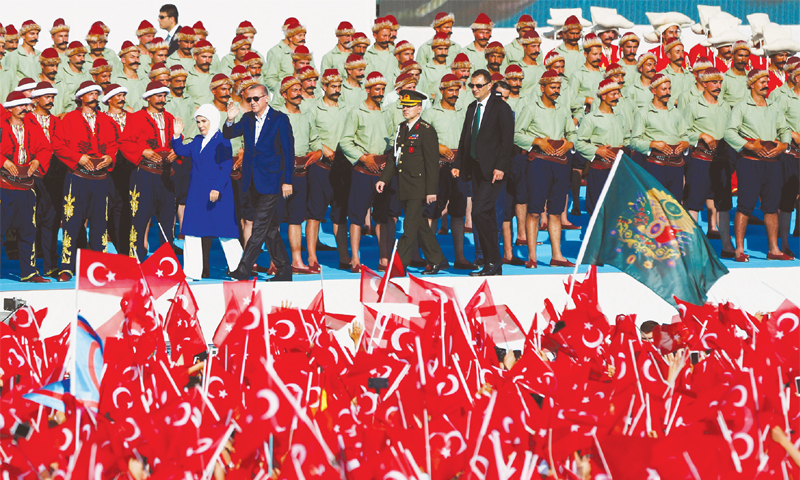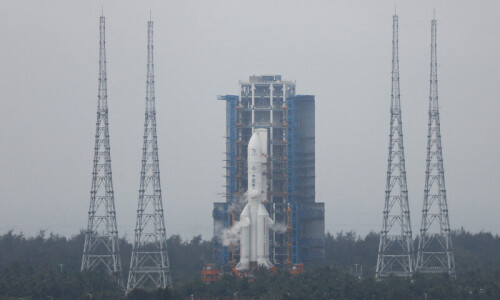ON May 29, 1453 the Ottoman army under Sultan Mehmet II broke through the walls of Constantinople, conquering the capital and last major holdout of the Byzantine Empire. In much of the world, 1453 has since been filed alongside 1066 in the pantheon of red-letter dates in history whose significance no one is quite sure of.
But in Turkey, not surprisingly, the Ottoman conquest of the country’s largest city still resonates, so much so that ideological arguments continue to rage over how — and exactly what — to celebrate on May 29. Just as Americans of different political persuasions argue about whether this or that Founding Father was a devout Christian or an atheist, Turks have projected conflicting identities onto the heroic figure of Mehmet.
Anyone following Turkish politics lately is familiar with the Islamicised version of Ottoman history promoted by the country’s ruling Justice and Development Party (AKP), which celebrates Sultan Mehmet II as an embodiment of Muslim piety. A recent movie titled “Conquest 1453” exemplifies this view. It opens with a famous quote from the Prophet Muhammad (PBUH) — “One day Constantinople will be conquered. Great is the commander who will conquer it. Great are his soldiers.” — then goes on to show Mehmet and his soldiers praying together before their assault on the city while Byzantine priests within cry out for Muslim blood.
But things were very different six decades ago, in 1953, when Turks celebrated the quincentenary of Constantinople’s conquest. At that time, Mehmet was honoured as a thoroughly secular ruler. Turkish intellectuals and politicians praised his pro-Western outlook, supposedly revealed by his interest in Renaissance art, his knowledge of Greek and Latin, and the cutting-edge military technology he utilised. Even his decision to convert the church of Hagia Sophia into a mosque rather than destroying it was touted as proof of his enlightenment, prefiguring Mustafa Kemal Ataturk’s decision to turn the building into a museum.
The 10-day celebration the government organised to mark 500 years of Turkish Istanbul was equally secular and Western. In addition to balls, garden parties and soirees, there was opera, a fashion show and special government-issued cigarettes featuring the sultan. In New York, Turkish expats created a cocktail dubbed the Istanbul Magic.
Yet looking back, a striking continuity is also apparent in Mehmet’s evolving image. In some ways, Turkey’s 1953 celebrations looked a lot like the neo-Ottoman military pageants put on by the Turkish government today, complete with tacky costumes, fake mustaches and an abundance of national flags. Mehmet’s Turkishness and military prowess, it seems, appeal to his secular and Islamist admirers alike.
Just how nationalist the AKP’s Islamist take on Ottoman history remains became clear last spring when the militant Islamic State group launched a Turkish-language propaganda magazine timed to coincide with the May 29 anniversary. Called Konstantiniyye, after the original Arabic version of “Constantinople”, it challenged the Turkish government by claiming that the prophet’s prophecy would be fulfilled only when the IS captured Istanbul with “the new army of the caliphate”.
While it was odd to see the Islamist extremist group invoking a Christian saint in its magazine title, what was truly shocking was the suggestion that Mehmet’s conquest of Constantinople didn’t count. Turks of all persuasions might battle over Mehmet’s image as they seek to claim his mantle. But none dispute that his conquest of Istanbul was the one that mattered — for Turks, for Muslims and for the world.
Danforth writes about Middle Eastern history and politics. He is a senior policy analyst at the Bipartisan Policy Center.
—By arrangement with The Washington Post
Published in Dawn, May 30th, 2016















































Dear visitor, the comments section is undergoing an overhaul and will return soon.